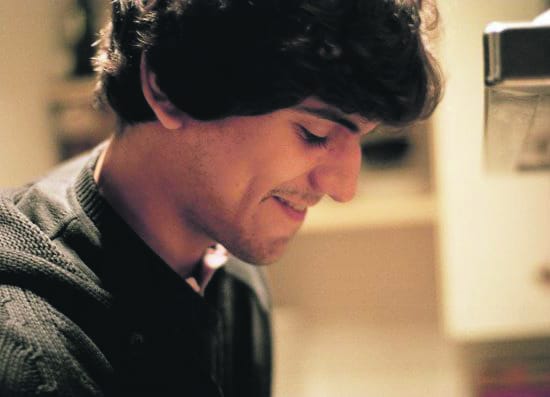The Artus Break
What to do then? How about you jump off a cliff mate, and find out?

The focus of my Fridays is the customary philosophy hour lunch break from my lectures. That's when a bunch of Philosophy enthusiasts (read: Greg Artus fans) gather around in the enclosed space once named the Pippard lecture theatre for their weekly dose of arguments and a fine prescription of debating.
The reason most of us like Greg's lectures is that he is quite the debater. Sort of like the living version of Al Pacino in Devil's Advocate...or was it Keanu Reeves? Maybe he's a mixture of both? One of my friends put it quite suitably: "Greg is an enigmatic figure that flies into lectures, says what he has to say, leaves all of our heads buzzing like no other lecturer does and then disappears in a puff of smoke." Funny thing is, no matter what course we are doing, we all find his words a refreshing alternative to the monotone science courses we chose to come to study at Imperial in the first place. Oddly, the Humanities Department suffered from cuts recently – anyone see a parallel today [1]?
Today, Hobbes' Leviathan was discussed along with his arguments for human nature being inherently flawed. This is backed up by the usual materialist psychology which claims that humans are driven by selfñinterest and do not have a natural inclination towards others. Our desires and needs are what drive us and once we acquire some of our material needs, we are constantly vigilant and ready to fight in order to protect them – 'the War of All against All'.
This seems like a pessimistic view of humans, I thought, as I took a bite of my spinachñfeta roll, but what would that mean? What does it mean to be selfñinterested? Is it different from being selfish? Do we all act on immediate desires and do we only postpone these when we are in pursuit of another, further desire? How could we always know what our best self-interests are and where does this leave altruism? Moreover, where does this leave love and the least selfñinterested of acts – dying for another human being?
Apparently, humans are more inclined to die for a close friend than a relative. Would you die for a friend or a sibling? No matter what your answer might've been, the truth is that you don't know what you would do until you were put into the situation and forced to choose. Your actions speak for themselves and they are undeniable proof of the never-ending adventure of discovering and getting to know oneself. One could argue that we're all quasi-patriots, selfish people, brutes and cowards until we prove with our actions that we are patriots, unselfish and generous people, civilized human beings and heroes. Unpretentiously put, we are neither - simply because we haven't lived enough to be able to tell the tale that proves either extreme.
What to do then? How about you jump off a cliff mate, and find out?
1 Cough, Life Sciences, cough.






